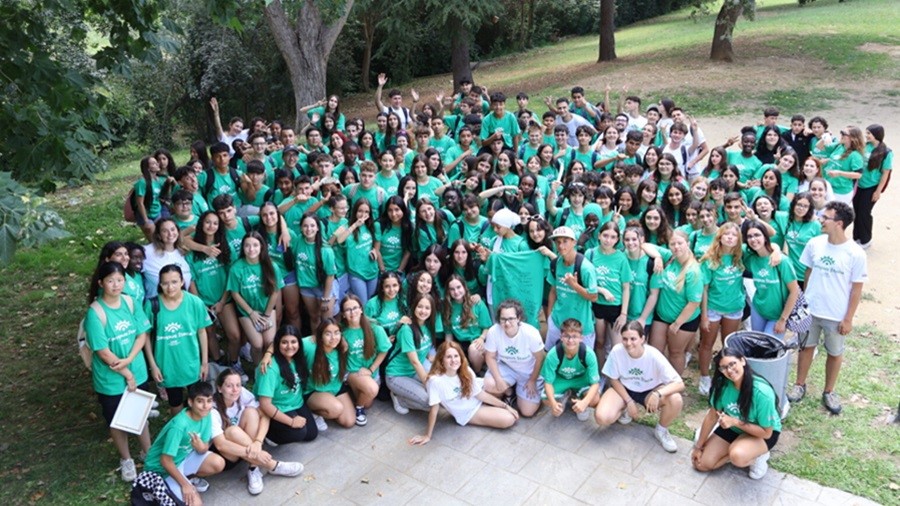Three hundred secondary school students participate in the 22nd edition of Campus Ítaca
Secondary school students from centres near the UAB will participate in the Campus Ítaca, which will take place between 25 June and 15 July. This year marks its 22nd edition. There will be 301 third-year secondary school students from 66 schools in Vallès Occidental who will take part in educational and recreational activities at the Bellaterra campus. The aim of this initiative, which is organised by the Fundació Autònoma Solidària (FAS), is to encourage them to continue studying once they have completed their compulsory education. Collaborating in the initiative are the Vallès Occidental Regional Council, the Barcelona Provincial Council and the Government of Catalonia.

The profile of the students targeted by the project is that of students with good study skills but who, due to their socioeconomic situation or the lack of close adult references with higher education, are in a situation of educational disadvantage. In addition to encouraging them to continue studying, the Campus Ítaca aims to become a space for coexistence between boys and girls from different social backgrounds and to promote the use of Catalan as a language of communication.
Participants will be divided into two shifts: the first will stay at the UAB from 25 June to 3 July, and the second will take place between 7 and 15 July. During the Campus Ítaca, groups carry out pedagogical activities (workshops, debates, projects, etc.) coordinated by UAB lecturers in which they put into practice research methodologies, as well as recreational and sports activities that promote both healthy habits and socialisation. This year, participating students will have the opportunity to choose activities according to their interest between the STEM field (science, technology, engineering and mathematics) and the field of social sciences and humanities.
UABer instructors
The students will be accompanied by some twenty instructors, who are UAB students accompanying them during their stay on campus and also during the trips to and from University and meals, which are considered another activity of the programme.
At the end of each of the two shifts there will be a closing ceremony attended by the families of the participants and the results of the research projects carried out by each group will be shown. The closing ceremony for the first shift will take place on 3 July, and for the second shift on 15 July. Both events start at 5:00 p.m. and will take place simultaneously in the conference hall of the Rectorat building and in the main lecture hall of the Faculty of Law.
All the students participating in this year's Campus Ítaca come from high schools in the Vallès region, specifically from the towns of Badia del Vallès, Barberà del Vallès, Castellar del Vallès, Cerdanyola del Vallès, Montcada i Reixac, Palau-solità i Plegamans, Polinyà, Ripollet, Rubí, Sabadell, Sant Cugat del Vallès, Sant Quirze del Vallès, Santa Perpètua de Mogoda, Sentmenat, Terrassa, Ullastrell and Viladecavalls.
The Campus Ítaca has been held since 2004. Throughout the different editions, nearly 7,500 secondary school students have participated. Students who finish upper secondary school in one of the centres that have participated in the initiative and who enroll in the first year of any degree taught by the UAB's own centres will be eligible for an Ítaca Salary Scholarship. The scholarship includes the payment of 500 euros per month for ten months, renewable during the years of duration of a bachelor's degree, and free tuition of first-time credits. Since its creation, more than 300 young people have already benefited from these grants. In addition, this year the FAS will also offer 30 Argó scholarships so that former participants of the Ítaca Campus can take part in the summer courses of the UAB Argó programme.
The UAB, with Sustainable Development Goals
Reduced inequalities
Quality education